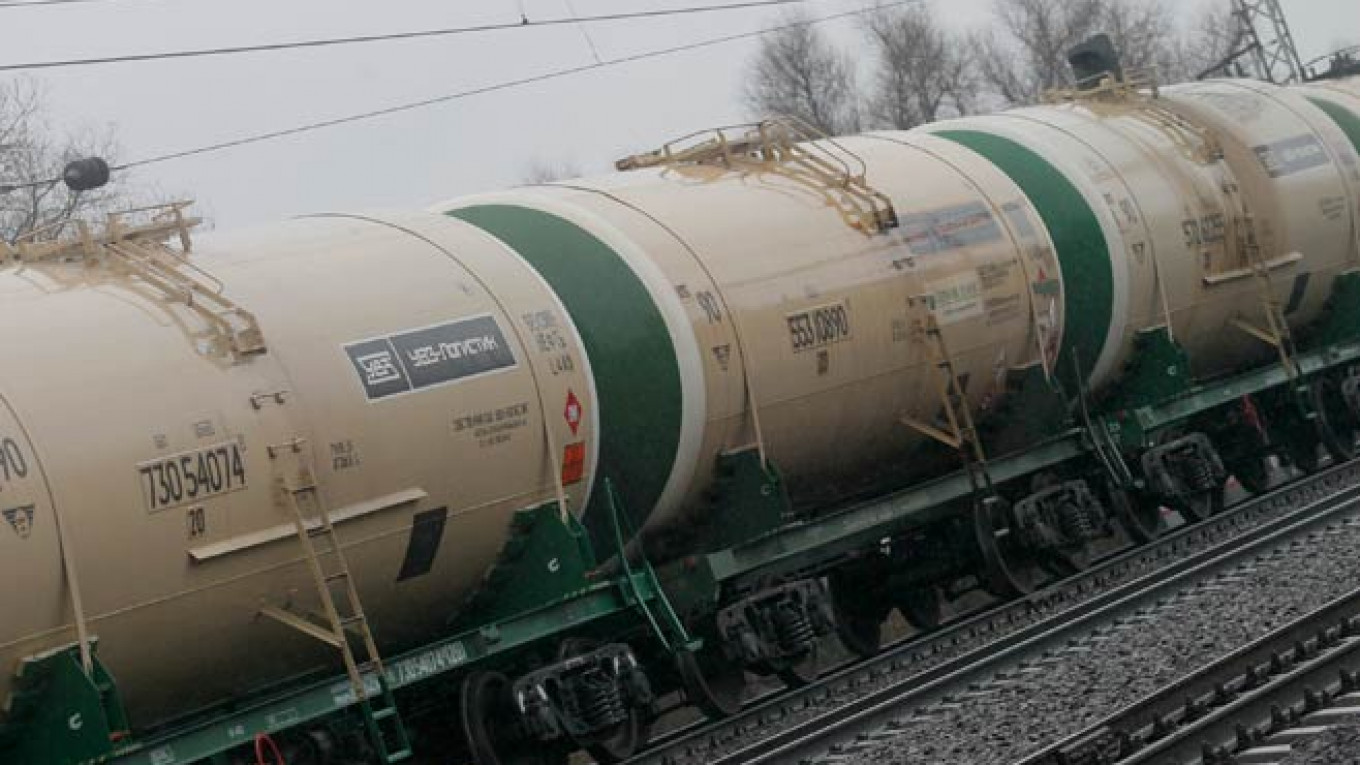Amid increasing tensions with the West, Russia is making progress on long-awaited deals with its eastern neighbor, China.
The China Development Bank has confirmed its plans to invest $5 billion in Russia's Far East, news reports said Friday.
Investments will be channeled to regional economic zones and will finance large infrastructure projects, Russia's Far East Development Ministry said.
"Russia is ready to take on the transit cargo coming from the Asia-Pacific region to Europe, in line with the plans of the Chinese government to reanimate the Great Silk Way," said Far East Development Minister Alexander Galushka.
The new silk way is not meant to be a physical replica of the ancient route that connected China and the Mediterranean through Persia, but is rather a general concept of a land and sea transport corridor that has the same purpose — to link Asia and Europe, Galushka said.
The Trans-Siberian and Baikal-Amur railroads — in which Russia is investing $18 billion to modernize — could make up the land part of the route, reinforced by a seaway to the north.
"Speaking of the silk way, it is necessary to mention the Northern Sea Route, which has a considerable advantage over the traditional seaways connecting Europe and Asia [via the Suez Canal]," the Far East development minister said.
The route that crosses the icy waters of Russia's part of the Arctic is considerably shorter and, besides time, saves the expense of tons of diesel fuel. According to Galushka, the northern route is on average 25 percent cheaper than the traditional one through the Suez.
China's interest in the route is mounting. In the summer of 2013, Russian icebreakers led the first Chinese commercial ship through the Northern Sea Route to Rotterdam. It reached the destination 15 days earlier than it usually takes to go from China to Europe.
Beijing's interest in the Far East comes as trade between Russia and China is growing rapidly. The annual trade turnover is currently at almost $90 billion and is expected to surpass $100 billion in the coming years.
Another strong point of contact, besides transport, is energy relations. On Wednesday, Russia's state-owned energy giant Gazprom announced that the long-discussed deal to supply gas to China is poised to be finally inked in May, when President Vladimir Putin plans to visit the country.
Under the preliminary terms of the contract, Russia is slated to supply China with 68 billion cubic meters of gas per year, which is slightly more than it would transport to Europe through the South Stream pipeline.
"The Far East investment agreement and the upcoming gas contract with China are not connected, it just so happened that long years of work bear fruit simultaneously," said Gleb Ivashentsov, deputy head of the Russian Research Center for the Asia-Pacific Economic Cooperation Forum.
"But at the same time this is a sign for Europe that Russia has economic partners elsewhere as well. Namely, in the east," Ivashentsov said.
Besides China, Russia is teaming up with South Korea and Japan. Although these countries maintain close ties with the West, they have not yet supported the sanctions imposed on Russia, Ivashentsov added.
Contact the author at a.panin@imedia.ru
A Message from The Moscow Times:
Dear readers,
We are facing unprecedented challenges. Russia's Prosecutor General's Office has designated The Moscow Times as an "undesirable" organization, criminalizing our work and putting our staff at risk of prosecution. This follows our earlier unjust labeling as a "foreign agent."
These actions are direct attempts to silence independent journalism in Russia. The authorities claim our work "discredits the decisions of the Russian leadership." We see things differently: we strive to provide accurate, unbiased reporting on Russia.
We, the journalists of The Moscow Times, refuse to be silenced. But to continue our work, we need your help.
Your support, no matter how small, makes a world of difference. If you can, please support us monthly starting from just $2. It's quick to set up, and every contribution makes a significant impact.
By supporting The Moscow Times, you're defending open, independent journalism in the face of repression. Thank you for standing with us.
Remind me later.


